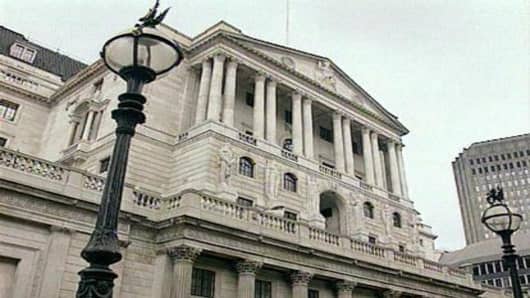The Bank of England has allocated all it intends to in quantitative easing, and will not exit the bond purchase program for another six months at least as the economic outlook remains shaky, a Reuters poll showed.
Median forecasts from the poll of 60 analysts, taken Sept. 28-Oct. 1, suggest the central bank will limit its purchases of mainly government bonds to 175 billion pounds.
However, a third of respondents said the Monetary Policy Committee could expand the program further when it meets on Oct. 7-8.
"You can never rule out that they will surprise but I think they have probably done enough," said Michael Saunders at Citi.
The highest forecast saw the MPC eventually deciding to spend 250 billion pounds, and both the median and maximum forecasts were in line with a poll taken last month. Median forecasts see the MPC holding the main interest rate at an historic low of 0.5 percent until July 2010 at the earliest, in line with a poll taken in early September.
Rates were seen rising to 0.75 percent by September next year and then finishing off 2010 at 1.25 percent.
"The MPC will likely remain cautious and keep monetary policy loose for a considerable period in our central case. It is unlikely to even consider raising rates until about mid-2010," said Melanie Baker at Morgan Stanley.


